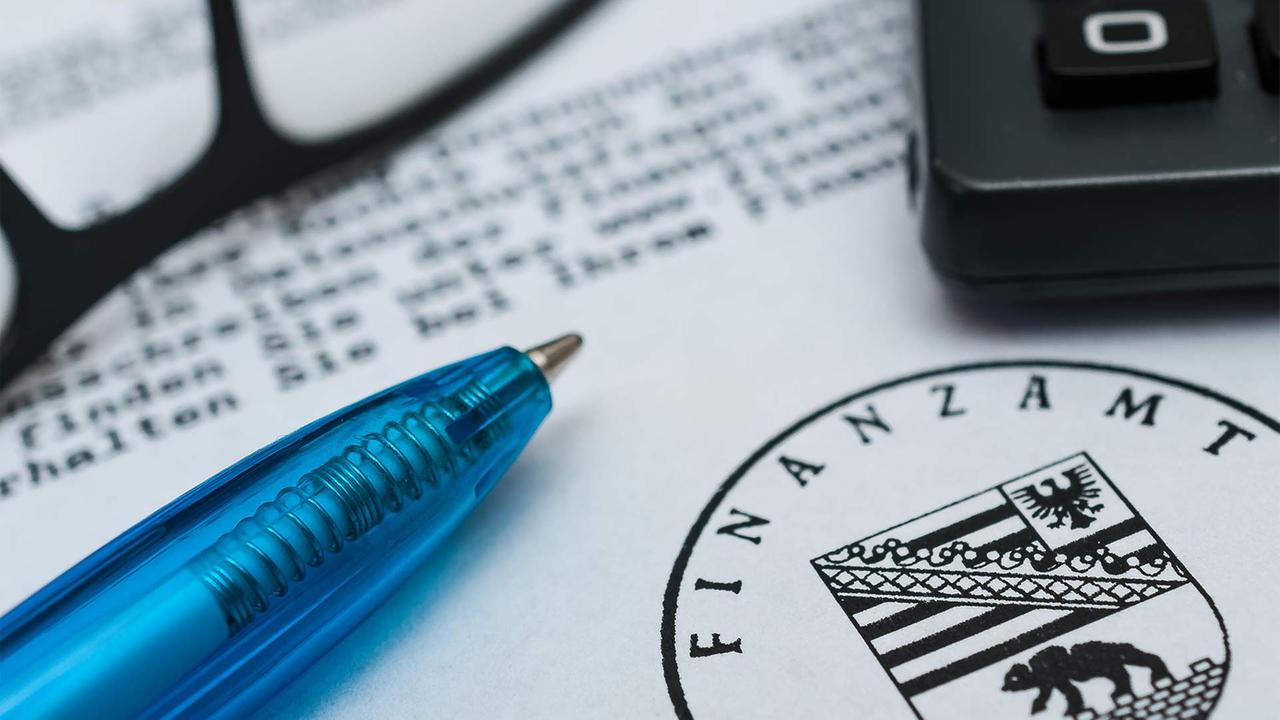background
Interest, dividends, price gains – the tax authorities take action when savers earn income from investments. However, the tax is by no means always due and is even eliminated completely for some forms of investment.
Profits on the fixed-term deposit account or on the stock exchange are nice, but someone makes money from them: the tax office. The withholding tax, which is then usually due, is 25 percent plus solidarity surcharge and, if applicable, church tax.
There is no longer a speculation period that makes income from stocks or investment funds tax-free after a certain holding period. However, savers can also “optimize” the tax to a certain extent when investing money, and for certain types of investment it can even be avoided entirely.
Use the flat rate wisely
Every saver is entitled to a flat-rate savings amount of 1,000 euros annually. For married people the amount is 2,000 euros. Capital gains are tax-free up to this amount. If you don't want to get back overpaid taxes through your tax return, you should set up an exemption order with your bank so that the tax-free scope also applies directly when paying interest or selling funds or shares. Exemption orders can also be distributed across multiple accounts.
The tax office only partially benefits from the income from investment funds; this is ensured by the so-called partial exemption, as Tobias Wagner from KSW Vermögensverwaltung explains: “The amount of the exemption varies between the different types of funds.”
According to the expert, a fund that invests mainly in stocks will be exempt from tax with a higher proportion than, for example, a mixed fund with a lower share of stocks. “Specifically, it looks like this: equity funds with at least 51 percent equity share are 30 percent exempt, mixed funds with an equity portion of at least 25 percent are 15 percent exempt from tax and real estate funds are even 60 percent exempt.”
Gold also shines from a tax perspective
But there are also forms of savings and investments where the withholding tax is completely eliminated. This is the case, for example, with profits from gold and other precious metals. The sale is classified here for tax purposes as a “private sale transaction”. And different rules apply than for “normal” investments. However, gold must be purchased “physically” in the form of coins or bars.
Or you can switch to another form of buying gold, says Wagner: “You can also invest in securities in a portfolio, so-called gold ETCs.” However, these must certify a claim to the “physical” delivery. In German: The owner of a gold security must be able to have the gold delivered to his home after the sale.
In principle, the gains in value of physical gold are tax-free after a minimum holding period of one year. In the case of a previous sale, only capital gains of up to 1,000 euros are tax-free. If you want to sell beforehand, you have to pay tax on the profit, but not with the withholding tax, but with your personal income tax rate.
Bitcoin profits are also tax-free after one year
The tax exemption after a holding period of one year also applies to a new form of investment that is once again making a splash: profits from the sale of Bitcoin or other cryptocurrencies are also tax-free after one year. Otherwise, a similar regulation applies as with gold, explains tax advisor Tobias Bohn: “Bitcoin is taxed with income tax in the private sector whenever there is a period of less than a year between purchase and sale.”
According to Bohn, sales also include the exchange for other coins or the actual payment with Bitcoins at a merchant who, for example, accepts Bitcoin as a means of payment, “then the taxable amount is generally determined as the difference between the sales price and the purchase price,” explains Bohn.
However, it is not certain that the tax exemption after one year will remain in the future, says the expert. The tax authorities could soon become more involved in Bitcoin and cryptocurrencies: “For a long time, Bitcoin was probably a bit under the radar of the tax authorities and under the radar of the tax authorities. But with these current considerable gains in value, in my opinion it cannot be ruled out that the state then want to take part in it too.” So it's quite possible that it will soon mean 25 percent plus X in withholding tax, including for Bitcoin.
Real estate is interesting for tax purposes in the long term
However, if you have staying power, there is still a form of savings and investment available that does not incur any tax if certain deadlines are met: real estate. In the case of a rented property, any profit from the sale can be collected tax-free after ten years. Anyone who has lived in a previously purchased property for at least three calendar years can then sell it tax-free.
However, tax exemption only applies if no more than three properties are sold within five years. Otherwise the property sale is considered commercial and sales and trade tax are due.
Andreas Braun, HR, tagesschau, December 6th, 2024 10:26 a.m





